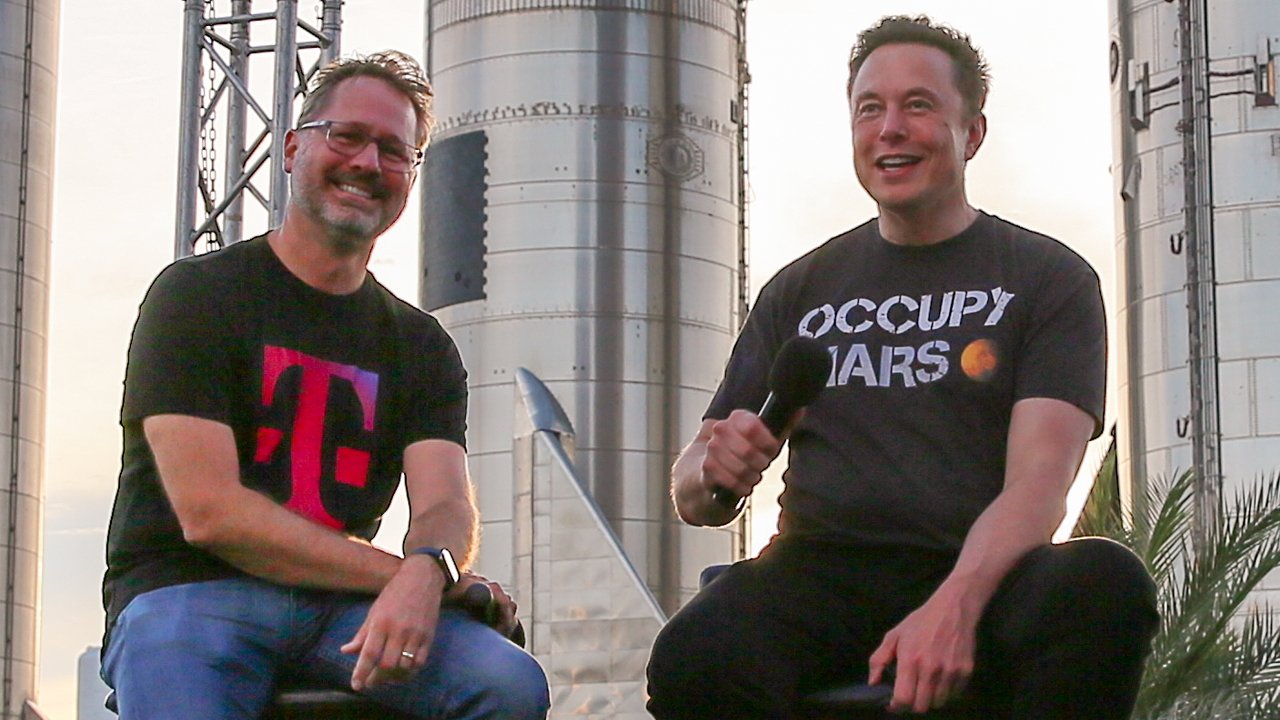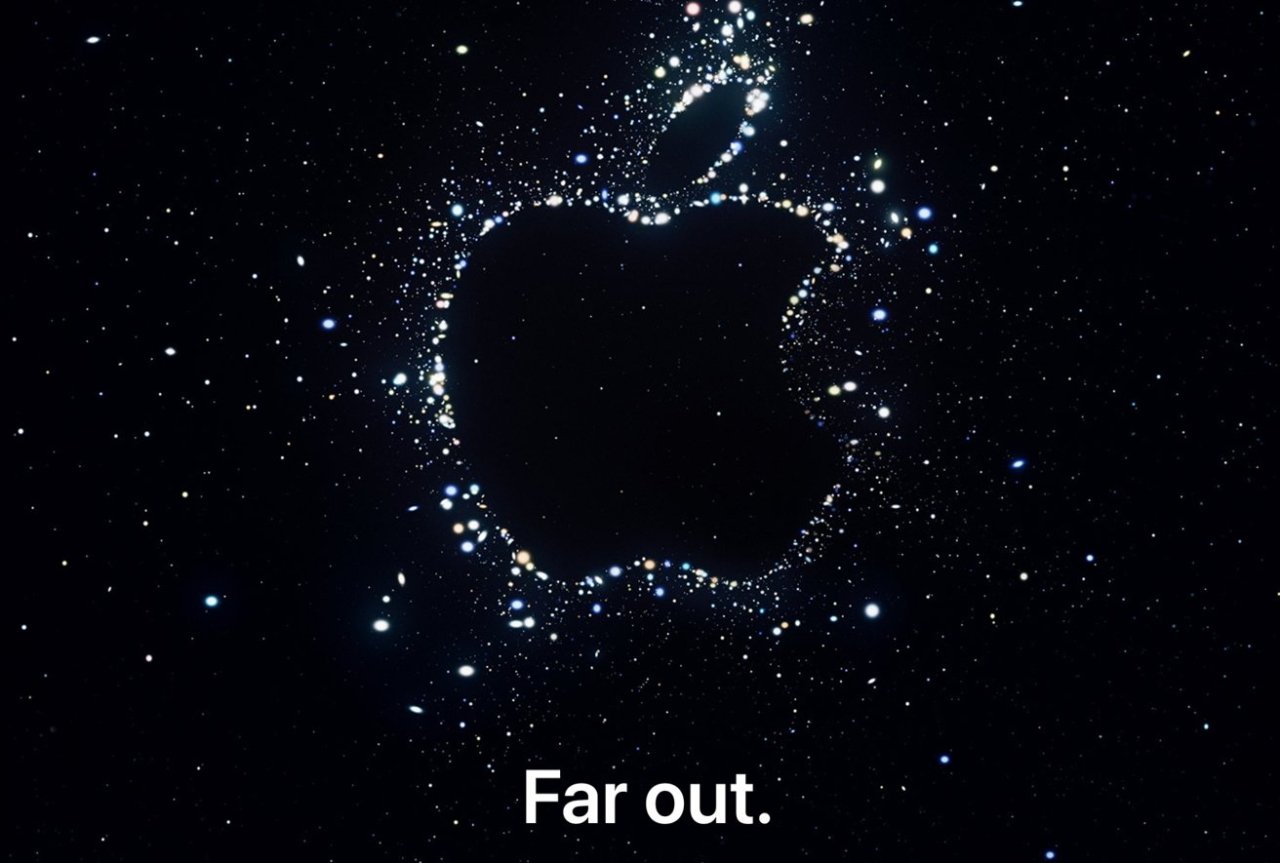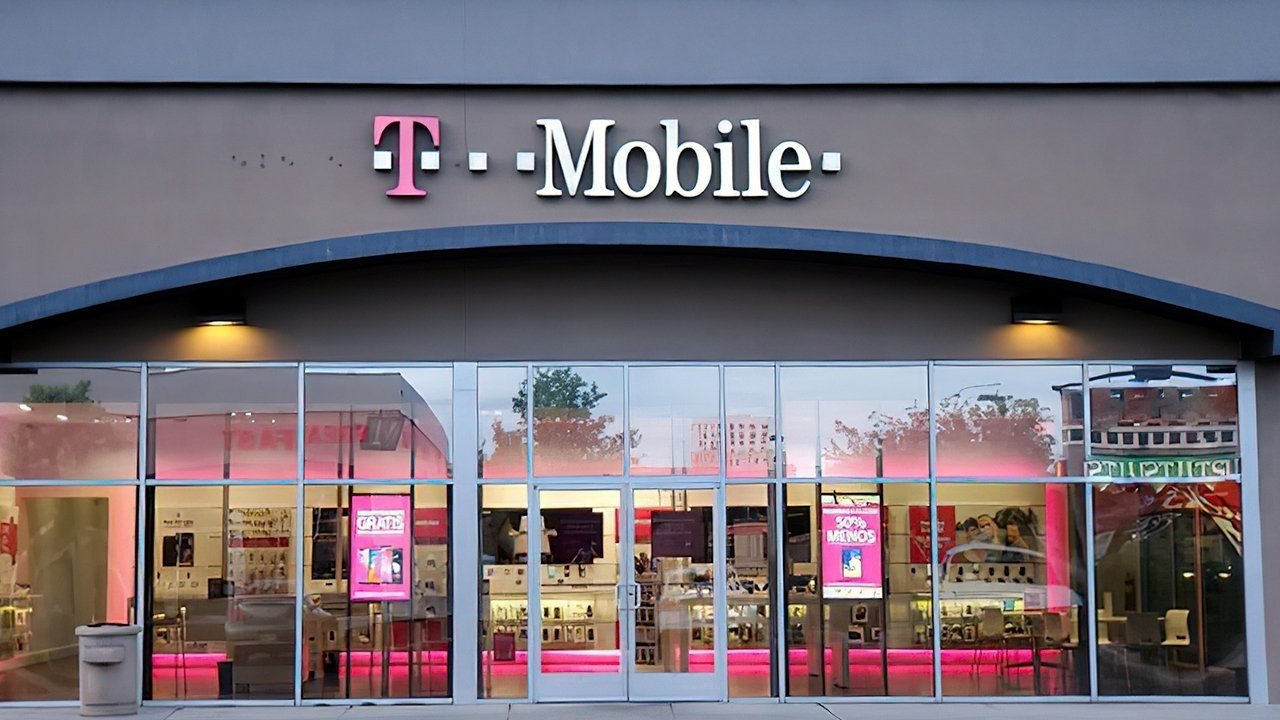Elon Musk and T-Mobile try beating Apple with satellite vaporware
Just in case Apple unveils satellite communications for the iPhone 14, Elon Musk and T-Mobile have tried to beat it to the punch by investing in vaporware heralded by a press event.

T-Mobile CEO Mike Sievert (left) and SpaceX's Elon Musk (right)
We won't know until September 7 whether it's true that Apple's iPhone 14 will include satellite-based communications for users in areas without cell coverage. However, based on evidence of Apple's research and deals over the last two years, plus a studied reading of the "Far Out" press invitation, it does look likely.
Or at least it looks likely enough that T-Mobile and Elon Musk's SpaceX have raced to beat Apple to the launch -- in a way. The two companies are not actually going to bring phone coverage to rural USA today, but they have decided to talk about it as if they will.
The combination of the two companies is essential. For satellite communications in a smartphone, you need the satellites and SpaceX has its Starlink group of them, or at least it plans to launch sufficient of them over the next years.
This is really how the two companies can make this announcement. SpaceX is going to launch satellites anyway and it costs nothing to say they'll be used for smartphone communications.
Physics, engineering, and launch windows being what they are, when they'll really launch and the payload being available is anybody's guess.
Apple doesn't have its own satellites and it will need at least a network that will connect to existing ones. However, one reason to think the feature is coming at some point is that in April 2022 it was reported to be working with a satellite firm Globalstar.

Apple's "Far Out" reference may not mean satellite communications for iPhone, but T-Mobile and SpaceX aren't taking any chances
Then of course Apple has the smartphone side of the equation covered because it's about to launch the iPhone 14. Whether satellite communications come in that or the iPhone 15, Apple controls the hardware, so it can choose to include what features it wants.
One of them is very appealing. Without listing any specific phones, T-Mobile's announcement says that it will provide satellite communications for relatively modern smartphones with compatible modems. This probably means iPhone 12 and newer, but this list will get a little hairy on the Android side.
T-Mobile and SpaceX are proposing a second workaround to having users buy new phones. Their plan will not require people to buy new phones in order to make phone calls via a satellite -- because it won't let people make phone calls via a satellite.
It's one of those grand plan announcement where the details are sketchy, and the big promises come with terms and conditions. So for instance, the press release is headlined with, "New service aims to connect vast majority of smartphones already on TMobile's network to Starlink satellites."
"We've always thought differently about what it means to keep customers connected," said T-Mobile's Sievert in the same announcement, "and that's why we're working with the best to deliver coverage above and beyond anything customers have ever seen before."
This is a cell carrier company promising "coverage above and beyond," but not promising phone calls or data usage -- because they're not going to do that. Voice and data are not even in the plan.
"Text messaging, including SMS, MMS and participating messaging apps, will empower customers to stay connected and share experiences nearly everywhere," says one of the last paragraphs of the announcement. "Afterwards, the companies plan to pursue the addition of voice and data coverage."
Since the point was to get this news out before Apple, there is only a passing nod toward giving a timescale for the promises. Together, T-Mobile and SpaceX won't commit to a date, but they do say the service should start by the end of next year.
So you may be able to get text message support in late 2023 -- if you're part of the firms' beta test. And, that is, if SpaceX's planned satellite launches go to schedule.
Consequently Apple may be promising iPhone satellite communications on September 7, 2022, but T-Mobile and Musk hope to beat it to the punch by letting you assume it will do the same thing in the next couple of years.

Don't expect to see smartphone satellite voice and data coverage in stores any time soon
It won't.
Even if this is not another Elon Musk vaporware promise, what the two companies try to make sound so great is just empty.
Certainly, not everyone will be able to budget for an Apple iPhone that has satellite communications in it, given that the existing replacement cycle is pushing about 40 months on the average. But equally, no one who requires satellite communications is going to have their needs sated by satellite text messages.
So of the market for satellite communications via iPhone, some people will buy Apple's solution in order to get actual phone calls and data. Whereas some people will just carry on without cell coverage the way they now have for decades.
The people who buy Apple's solution will use Apple's satellites. The people who don't buy Apple's solution, won't buy T-Mobile and SpaceX's service because it won't do what they need.
Maybe Apple will announce satellite communications for iPhone 14 on September 7, or maybe it won't. But come late 2023, the most we'll see from T-Mobile and SpaceX is a beta test "in select areas," and offering only text messages.
Read on AppleInsider

T-Mobile CEO Mike Sievert (left) and SpaceX's Elon Musk (right)
We won't know until September 7 whether it's true that Apple's iPhone 14 will include satellite-based communications for users in areas without cell coverage. However, based on evidence of Apple's research and deals over the last two years, plus a studied reading of the "Far Out" press invitation, it does look likely.
Or at least it looks likely enough that T-Mobile and Elon Musk's SpaceX have raced to beat Apple to the launch -- in a way. The two companies are not actually going to bring phone coverage to rural USA today, but they have decided to talk about it as if they will.
What T-Mobile and SpaceX propose
Specifically, the two companies say that they are collaborating to use SpaceX's satellites and T-Mobile's mid-range spectrum cell signal for what's implied to be phone coverage for all. Or nearly all, as the announcement starts by saying it's for "everywhere," then quietly adjusts that to "practically everywhere."The combination of the two companies is essential. For satellite communications in a smartphone, you need the satellites and SpaceX has its Starlink group of them, or at least it plans to launch sufficient of them over the next years.
This is really how the two companies can make this announcement. SpaceX is going to launch satellites anyway and it costs nothing to say they'll be used for smartphone communications.
Physics, engineering, and launch windows being what they are, when they'll really launch and the payload being available is anybody's guess.
Apple doesn't have its own satellites and it will need at least a network that will connect to existing ones. However, one reason to think the feature is coming at some point is that in April 2022 it was reported to be working with a satellite firm Globalstar.

Apple's "Far Out" reference may not mean satellite communications for iPhone, but T-Mobile and SpaceX aren't taking any chances
Then of course Apple has the smartphone side of the equation covered because it's about to launch the iPhone 14. Whether satellite communications come in that or the iPhone 15, Apple controls the hardware, so it can choose to include what features it wants.
T-Mobile can't make phones
T-Mobile can't do that. Rather than this meaning T-Mobile is incapable of providing the satellite communications service it now promises, however, the company has two ways of working around the problem.One of them is very appealing. Without listing any specific phones, T-Mobile's announcement says that it will provide satellite communications for relatively modern smartphones with compatible modems. This probably means iPhone 12 and newer, but this list will get a little hairy on the Android side.
T-Mobile and SpaceX are proposing a second workaround to having users buy new phones. Their plan will not require people to buy new phones in order to make phone calls via a satellite -- because it won't let people make phone calls via a satellite.
It's one of those grand plan announcement where the details are sketchy, and the big promises come with terms and conditions. So for instance, the press release is headlined with, "New service aims to connect vast majority of smartphones already on TMobile's network to Starlink satellites."
"We've always thought differently about what it means to keep customers connected," said T-Mobile's Sievert in the same announcement, "and that's why we're working with the best to deliver coverage above and beyond anything customers have ever seen before."
This is a cell carrier company promising "coverage above and beyond," but not promising phone calls or data usage -- because they're not going to do that. Voice and data are not even in the plan.
"Text messaging, including SMS, MMS and participating messaging apps, will empower customers to stay connected and share experiences nearly everywhere," says one of the last paragraphs of the announcement. "Afterwards, the companies plan to pursue the addition of voice and data coverage."
This is solely about beating Apple's announcement
Right. They grandstand as if this is satellite cellphone coverage accomplished before Apple can even make its announcement, but really it's about maybe one day doing text messaging, eventually. Really it's solely about trying to beat Apple.Since the point was to get this news out before Apple, there is only a passing nod toward giving a timescale for the promises. Together, T-Mobile and SpaceX won't commit to a date, but they do say the service should start by the end of next year.
So you may be able to get text message support in late 2023 -- if you're part of the firms' beta test. And, that is, if SpaceX's planned satellite launches go to schedule.
Consequently Apple may be promising iPhone satellite communications on September 7, 2022, but T-Mobile and Musk hope to beat it to the punch by letting you assume it will do the same thing in the next couple of years.

Don't expect to see smartphone satellite voice and data coverage in stores any time soon
It won't.
Even if this is not another Elon Musk vaporware promise, what the two companies try to make sound so great is just empty.
Certainly, not everyone will be able to budget for an Apple iPhone that has satellite communications in it, given that the existing replacement cycle is pushing about 40 months on the average. But equally, no one who requires satellite communications is going to have their needs sated by satellite text messages.
So of the market for satellite communications via iPhone, some people will buy Apple's solution in order to get actual phone calls and data. Whereas some people will just carry on without cell coverage the way they now have for decades.
The people who buy Apple's solution will use Apple's satellites. The people who don't buy Apple's solution, won't buy T-Mobile and SpaceX's service because it won't do what they need.
Maybe Apple will announce satellite communications for iPhone 14 on September 7, or maybe it won't. But come late 2023, the most we'll see from T-Mobile and SpaceX is a beta test "in select areas," and offering only text messages.
Read on AppleInsider

Comments
‘No wine before it’s time.’
https://spacenews.com/lynk-satellite-testing/
I wonder if he’s having his dancing robots build it.
Nice (bungled) callback to an Apple marketing slogan that's been defunct for twenty years, Mr. Sievert. That really makes me think you're truly looking ahead.
SpaceX has launched thousands of satellites in the last two years and is already operating it's "internet from space" network all over the globe.
People mocked them two years ago......and now here we are, internet from frickin outer space!
I’m not hating. I’m just realistic. Musk’s timeline, as always, is overly optimistic. He’s also known for his vaporware products that are either several years delayed or nonexistent. Semi trucks that beat the cost of rail? Self-driving robo-taxis that make owners money? The lie of Hyperloop? Battery-swapping stations for Teslas? Cybertruck delays. $35K Model 3s? New battery tech when they’re just buying Panasonic batteries.
So far Musk has mostly kept the vaporware out of SpaceX, but he’s blowing smoke up people’s asses about Mars colonization and this satellite phone service beta available in 16 months. They’ll be lucky if they have enough birds in the sky to do internal testing of this service by end of 2023. After all, they still have NASA contracts to fulfill in that time too.
I bet two years ago you were saying Starlink would never happen. Yet here I am, sending you a message over Starlink internet!
That's not the only thing you're wrong about, the Version 2 satellites fit on Falcon 9 and that is their plan while they increase the flight cadence of the bigger Starship.
For more details you can watch this video:
It's fair to levy criticism. If Apple were making all these promises and not delivering on them, they'd be crucified by the tech press.